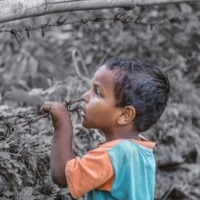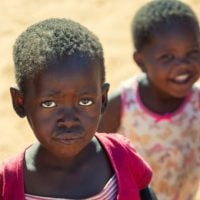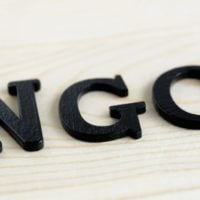Deadline: 6 January 2022
The 25th grant cycle of the UN Trust Fund to End Violence against Women (UN Trust Fund) is now open. This fund is seeking proposals for civil society-led, demand-driven initiatives to end violence against marginalized women and girls and those experiencing intersecting forms of discrimination.
The UN Trust Fund will prioritize applications that employ an intersectional approach and adopt the principle of leaving no one behind in working with the most marginalized women and girls (including, but not limited to, indigenous women and girls, minority ethnic women and girls, LBTIQ+ people, women and girls with disabilities, older women, women and girls internally displaced (IDPs) and refugees, and women and girl survivors of violence).
The UN Trust Fund prioritizes applications from women’s rights organizations and local civil society organizations led by and for marginalized women and girls; organizations that are the driving force of the ending violence against women and girls agenda in their communities and those at the forefront of reaching at-risk women and girls and survivors of violence are invited to apply for a grant.
This Call for Proposal is guided by the UN Trust Fund’s Strategic Plan 2021-25 and its vision of “a world of global solidarity in which all women and girls live free from all forms of violence and enjoy and exercise their human rights. This vision is aligned with international human rights standards, the 2030 Agenda for Sustainable Development (SDGs) and international humanitarian principles and standards, of which gender equality and the elimination of all forms of violence and discrimination against women and girls is an integral part.
The aim of the UN Trust Fund, over the next five years, is to “ensure that more women and girls, especially the most marginalized and those experiencing intersecting forms of discrimination, can exercise their human right to live a life free of all forms of violence” through initiatives that:
- Improve prevention of VAW/G through changes in behaviours, practices and attitudes
- Improve access for women and girls to essential, specialist, safe and adequate multisectoral services.
- Increase effectiveness of legislation, policies, national action plans and accountability systems to prevent and end VAW/G
In pursuit of these outcomes, the UN Trust Fund’s mission is to “enable Civil Society Organizations (CSOs), especially Women’s Rights Organizations (WROs) and those that represent the most marginalized groups, to play a central role in delivering survivor-centered and demand-driven initiatives and to support their programmes to achieve sustainable impact on ending violence against women and girls (EVAW/G) in a manner that contributes to global solidarity, partnerships, and inclusive feminist movements”.
In this context, the UN Trust Fund welcomes proposals:
- Submitted by organizations with proven expertise in ending violence against women and girls (VAW/G)
- Conceptualized, developed and fully implemented by CSOs, in line with their assessments of the particular needs of their countries or communities and aligned to one or more of the UN Trust Fund’s three outcome areas
- Focused on marginalized women and girls, and those experiencing intersecting forms of discrimination
- Guided by the UN Trust Fund’s values and principles, with special attention to:
- adopting an intersectional approach and in line with the “leave no one behind” principle
- organizational resilience and sustainability in a rapidly changing and complex environment
Funding Information
They will fund all selected organizations for a three-year period. In doing so, they intend to ensure predictability of funding and technical assistance for organizations they select, and continuity of services for the women and girls they reach.
They will award grants between US $50,000 and US $150,000 for small civil society organizations. To be considered a “small organization”, the organization’s annual operational budget must have been lower than US$ 200,000 (on average) over the last three years.
They will award grants between US $150,001 and US $1,000,000 for all other civil society organizations.
Organizations should consider their own operational and absorptive capacity when submitting a funding request. In general, an organization cannot request a grant amount more than thrice its annual organization budget (using last 3-years average organizational budget). They will assess absorptive capacity against financial and audit reports as well as annual organization budget information submitted as part of the application.
Eligibility Criteria
Priority organizations that meet the following criteria are eligible to apply:
- Country coverage
- The applicant must implement a project in only one of the countries and/or territories listed in the Organisation for Economic Co-operation and Development Assistance Committee’s (OECD DAC) list of official development assistance (ODA) recipients.
- Legal status and registration
- The applicant must be a legally registered entity. Either the main applicant or at least one of its co-implementing partner(s) must be legally registered in the country or territory of project implementation. They require that legal registration documents be submitted with the application.
- Demonstrated capacity for operational, financial and human resource management
- Operational and human resources: The applicant must have the necessary operational and human resources to manage the proposed project. A clear project control framework should be defined once implementation starts.
- Certified Financial Statements and Organizational Audit Reports: The applicant must submit certified financial statements and organizational audit reports for three fiscal years (including 2018, 2019 and 2020).
- Partnership and accountability arrangements: Organizations can only apply once under this Call for Proposals, either as the main applicant organization or as a co-implementing partner.
- An application should include no more than three co-implementing partners that will receive a portion of the requested funding.
- In all cases, the applicant organization will be accountable for managing the grant award in its entirety.
- If applicable, the applicant organization will also be responsible for ensuring that its co-implementing partners fully understand and comply with all the requirements and obligations of the grant process.
- If awarded a grant, the applicant organization will also be responsible and liable for its co-implementing partner’s performance and results delivery.
- They highly encourage the use of Memoranda of Understanding (MoU) among all partners to define roles, responsibilities, deliverables and lines of accountability.
Ineligible Applicants
The following are NOT eligible to apply for a grant:
- Organizations proposing interventions in a country not listed in the OECD DAC list of ODA recipients
- Organizations proposing interventions in more than one country or territory
- Organizations whose work and mission/vision statement do not focus on nor explicitly mention gender equality and the elimination of violence against women and/or girls
- Organizations that do not have a legal status in the country or territory of implementation, and neither do any of its co-implementing partners
- Government agencies or institutions
- UN agencies or UN Country Teams
- Private individuals
- Private sector entities
- Organizations currently implementing a UN Trust Fund grant (unless it ends before March 2022)
For more information, visit https://untf.unwomen.org/en/grant-giving/call-for-proposals/application-guidelines









































